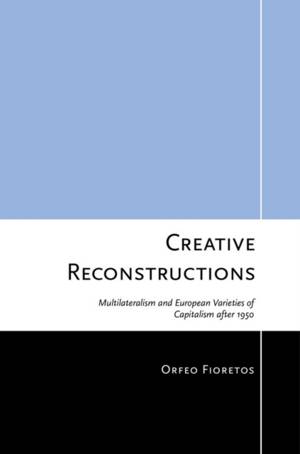
- Retrait gratuit dans votre magasin Club
- 7.000.000 titres dans notre catalogue
- Payer en toute sécurité
- Toujours un magasin près de chez vous
- Retrait gratuit dans votre magasin Club
- 7.000.000 titres dans notre catalogue
- Payer en toute sécurité
- Toujours un magasin près de chez vous
Creative Reconstructions
Multilateralism and European Varieties of Capitalism After 1950
Orfeo FioretosDescription
Twentieth-century Europe was an intense laboratory of capitalist experimentation. Confronted with economic booms and crises, technological revolutions, and economic globalization, Western Europe's governments constantly explored alternative ways of managing domestic economic systems and international commerce. Bridging comparative and international political economy, Creative Reconstructions compellingly expands our understanding of the historic relationship between varieties of capitalism and international cooperation.
Orfeo Fioretos' pathbreaking analysis places multilateral institutions at the center of the study of capitalism. He highlights the role played by governments' multilateral strategies in shaping the national trajectories of capitalism in Great Britain, France, and Germany. Fioretos shows that membership in international organizations such as the European Union and its precursors was an integral innovation in the domestic management of capitalism that came to play a central, if varied, role in shaping the evolution of modern market economies.
Spécifications
Parties prenantes
- Auteur(s) :
- Editeur:
Contenu
- Nombre de pages :
- 264
- Langue:
- Anglais
- Collection :
Caractéristiques
- EAN:
- 9780801449697
- Date de parution :
- 15-07-11
- Format:
- Livre relié
- Format numérique:
- Genaaid
- Dimensions :
- 152 mm x 236 mm
- Poids :
- 521 g







